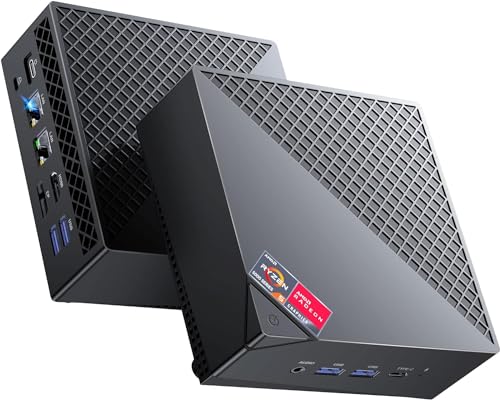Understanding Desktop Computers: What You Need to Know
What Makes a Desktop Computer?
A desktop computer is a personal computing device that is designed to fit at a desk or a workstation. Unlike laptops, which are portable and include built-in screens and keyboards, desktops typically consist of a separate monitor, CPU, keyboard, and mouse. This allows for greater customisation and upgradability, making it an ideal choice for power users and those who need a strong stationary setup for tasks such as gaming, graphic design, or extensive productivity work.
Why Choose Desktop Over Other Options?
Desktops generally offer more performance for a lower price compared to their portable counterparts. They provide better cooling, which allows for higher performance components that would be unsuitable in a compact laptop. If you’re considering a desktop, think about how you plan to use it—if you’re looking for maximum power for tasks like video editing, a desktop generally delivers the best value.
Types of Desktop Computers: Finding the Right Fit
All-in-One Computers
All-in-one computers combine the monitor and CPU into a single unit, which helps save space on your desk. They offer a sleek look and generally come with a touchscreen option, making them user-friendly. However, they can be more challenging to upgrade since many of their components are integrated.
Gaming Desktops
Gaming desktops are built for performance and include high-end graphics cards, faster processors, and more advanced cooling systems. If gaming is your primary focus, investing in a gaming desktop will ensure optimal performance for the latest titles.
Business Desktops
Business desktops are designed for productivity, with a focus on reliability and efficiency. They often come with pre-installed software and features such as enhanced security options, making them well-suited for office environments.
Mini PCs
Mini PCs are compact and can fit in small spaces while still providing decent computing power. They are an excellent option if you have limited desk space but want a desktop experience. We recommend assessing your performance needs and ensuring the mini PC can handle your intended tasks.
Key Features to Consider When Buying a Desktop Computer
Processor Power
The processor (or CPU) is the brain of your computer—it determines how quickly and efficiently your machine can execute tasks. For general use like browsing and streaming, a dual-core processor is often sufficient, but for gaming or intensive applications, a quad-core or higher is recommended.
Memory (RAM)
RAM is crucial for multitasking and overall performance. We suggest at least 8GB for everyday tasks and 16GB or more if you plan to run demanding software or play video games. More RAM can significantly improve speed and responsiveness.
Storage Solutions
Desktop computers typically come with either Hard Disk Drives (HDD) or Solid State Drives (SSD). An SSD offers faster boot times and quicker file access, which enhances your overall experience. Consider choosing a desktop with at least 256GB SSD for everyday use, while larger storage needs can be met with a combination of both HDD and SSD.
Graphics Card
If you’re into gaming, video editing, or graphic design, a dedicated graphics card is essential. Integrated graphics may be fine for simple tasks, but investing in a good graphics card will yield a significant performance boost in graphics-intensive applications.
Setting Your Budget: What to Expect at Different Price Points
Entry-Level Desktops
Budget desktops often range from £300 to £500 and are suitable for basic tasks such as web browsing, email, and word processing. While they provide essential functionality, they may struggle with demanding applications.
Mid-Range Desktops
Mid-range options typically fall between £600 and £1000 and are ideal for users who require more power for tasks like gaming and graphic design. These desktops usually feature faster processors, more RAM, and better storage options.
High-End Desktops
For serious gamers or professionals in creative fields, high-end desktops can cost upwards of £1200. These systems include top-of-the-line components that can tackle any task you throw at them. This investment brings enhanced performance and longevity.
Essential Accessories to Enhance Your Desktop Experience
Monitors
A good monitor can significantly improve your daily experience with a desktop. Look for one with a high resolution, such as 1080p or 4K, and consider the size based on your workspace. Dual monitors can also enhance productivity by providing extra screen real estate for multitasking.
Keyboards and Mice
Investing in a quality keyboard and mouse can improve comfort and efficiency. Mechanical keyboards offer tactile feedback, while ergonomic mice help prevent strain during extended use. Personal preference plays a large role, so we encourage trying out different options.
Speakers and Headphones
If sound quality is important, consider external speakers or quality headphones. Audio performance can enhance everything from gaming experiences to productivity and entertainment, so do not overlook this aspect.
Webcams and Microphones
With more remote work and online communication, a good webcam and microphone are essential for clear video calls. Look for high-resolution webcams that offer crisp images and microphones that enhance sound clarity for professional interactions.




















